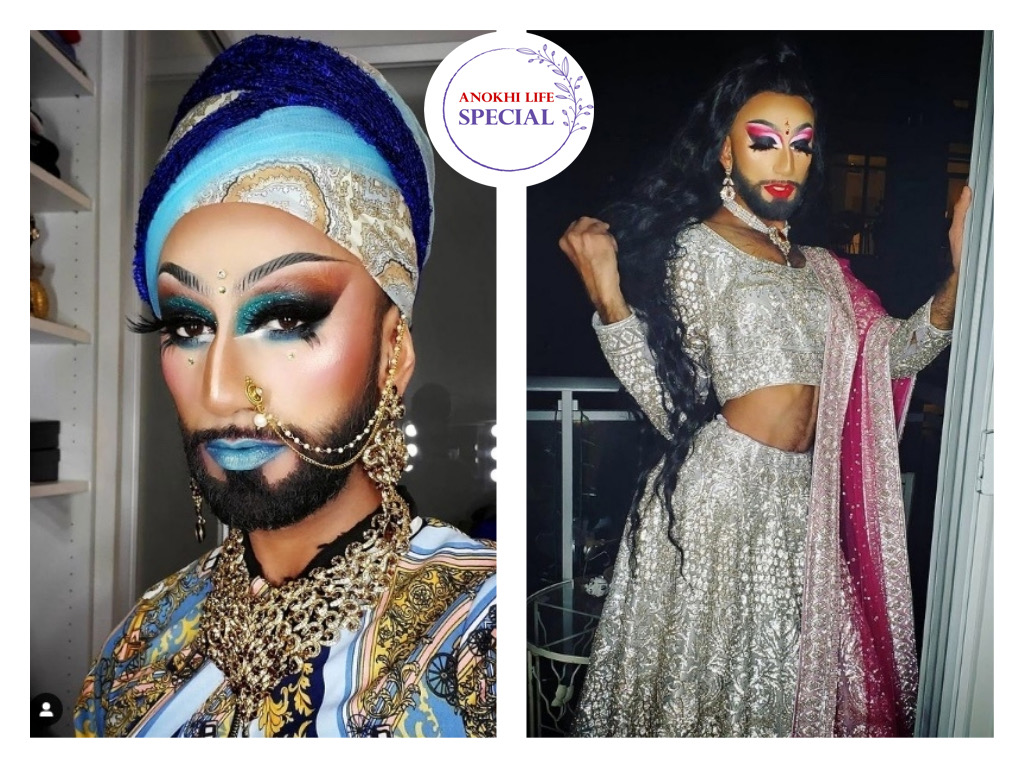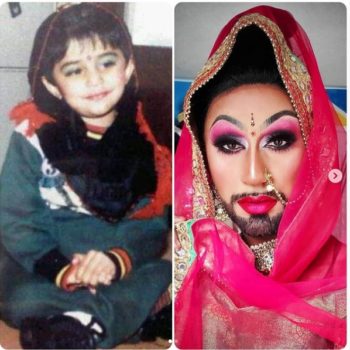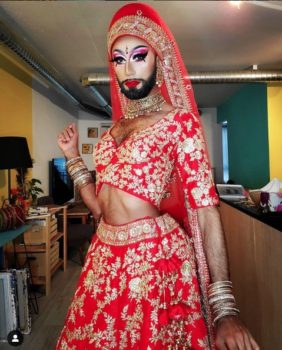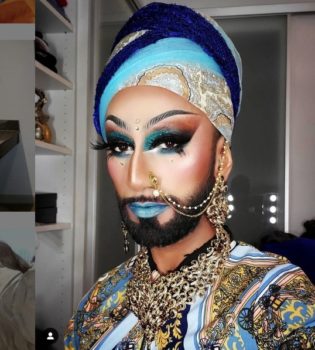
Pride Is A Lifestyle, Not A Month: Mango Lassi On His Life As An ‘Openly Queer, Femme Man’
Lifestyle Jun 30, 2021
Humza A. Mian also known as Mango Lassi, is a Toronto star in the local drag scene. To conclude our Pride 2020 Special, we have asked him to share his personal story. He gets candid about being a Pakistani “openly queer, femme man” and how he is reframing the way his Muslim family sees him.
“When I look back on my life it’s not that I don’t want to see things exactly as they happened, it’s just that I prefer to remember them in an artistic way.” When I heard Lady Gaga say these words in the introduction to her 2011 hit “Marry the Night”, I could feel my heart swell and the tears start to gather in my eyes. It was the bitter realization that when I did look back on my life while taking my last breaths, it may be full of lies. For many femme queer people of colour, this is a harsh reality.
There is a cultural trend within the South Asian community in which mothers dress their baby boys up as girls just for fun. They snap a few photos, watch their baby boy strut his stuff in the living room — maybe even give a bit of a performance to some classic Bollywood tunes. And then the makeup comes off before Dad gets home. My older sister and my mother dressed me up often and took photos.
Although I don’t remember any of this, our family photo albums have photographs of me donning a bridal dupatta, cheeks flushed with rosy blush, eyelids coated with a pale blue eyeshadow and topped with a healthy amount of liner. They even planted a bright red bindi between my brows. I could tell by the pictures that I was definitely feeling myself.
A few years later my dad bought a video camera and everyone immediately became obsessed with filming everything. Literally everything. There are hours of video footage of me flamboyantly dancing around to every kind of music (even TV commercial jingles — I was a resourceful child) while the women in my family cheered me on.
There was a moment during these years that I’ll hold so dearly to my heart; my grandmother encouraging me to wrap a blanket around my waist and dance to “Choli ke Peeche” for her. She laughed and clapped along and with each round of applause I felt more and more proud.

I don’t know what the turning point was for my parents to attempt put a stop to my feminine behaviour; maybe it was family gossip, maybe the death of their siblings that turned them towards religion. I’ll never know. What my pubescent self did know was that everything that I was celebrated for as a child was wrong and that it was time for me to become a man. My father pulled me aside one day after catching me in my mom’s clothes and said, “If I EVER catch you in women’s clothes again, or doing anything of that sort, I will send you to Pakistan and you will never see your sisters again!” My heart sank. My sisters meant the world to me and if that meant that I had to give up my baby-drag, then that was a fair sacrifice to make.
That was when I became immersed in Islam and denied all aspects of my femininity. I even started to ignore the feelings I was starting to develop for other boys at school. If being feminine was that awful to my parents now, I could only imagine how horrible the punishment would be if they knew I liked boys.
I spent the whole of my teenage years in this closeted hell. It wasn’t until I started working in retail during my first year of college that I met someone who embodied all the things that I had been repressing; a brown, openly queer, femme man. This was the inspiration I needed: the battering ram that had started to crumble the wall of toxic masculinity that I had built up over the last 10 years.
I slowly started to embrace my femininity again but this time with the encouragement of my friends and co-workers. They had helped me re-discover that expressing the feminine energy that a lot of Desi men are forced to suppress throughout their adolescence. This began the start of my interest in drag and my quest to inspire other South Asian men to rid themselves of the burden our forefathers have placed on us.

In the autumn of 2014, my boyfriend and I went out in drag for the the first time. It was Halloween so it was the perfect way to break-in our drag personas to our local queer scene. We had such positive responses that we kept on going out in drag after Halloween. It wasn’t until I went to Rupaul’s DragCon in Los Angeles in 2017 that I was finally recognized for bringing a piece of my Desi culture into the world of drag. The mere recognition from strangers can have such a drastic effect on the way a person perceives themselves. For me, it had cleared any doubt I had about expressing my feminine self and was the catalyst that lead me to so many opportunities that I would not have thought possible.
The relationship I have with my parents and extended religious family is one that is constantly on the cusp of the truth. The things I tell them aren’t a complete lie, but they aren’t the truth either; they ask me why I’m leaving the house in a face full of paint and I tell them that it’s because I’m heading to a costume party. I tell them artistic lies. I don’t want to remember these moments as they happened; I want to remember them in an artistic manner.

I’ve learned over the years that coming out is a constant process; it’s never ending. My queerness was encouraged as a child and then locked back up in the closet during my adolescence by my parents, then freed again in my early adult years by my own hand. I was careful of the people I chose to out myself to later in life because of my own safety. Unlearning toxic masculinity is a journey that may never end and it a contributor to why the process of coming out will be a life-long journey for myself and others who were raised in a household like mine.
Be careful. Be brave. Be yourself.
Main Image Photo Credit: www.instagram.com
Humza A. Mian aka Mango Lassi
Author
Humza A. Mian aka Mango Lassi (@_humzer) is a queer Canadian-Pakistani drag queen who's also a Registered Veterinary Technician in Toronto. His focus is to bring awareness to the existence of queer Desi folk & breaking the chains of toxic masculinity that hold so many queer Desis back from expre...













































































































